Not for profit
ZIS’s education-first status is fundamental
to its ethos, but what does it really mean
to be a non-profit school in the 21st century?
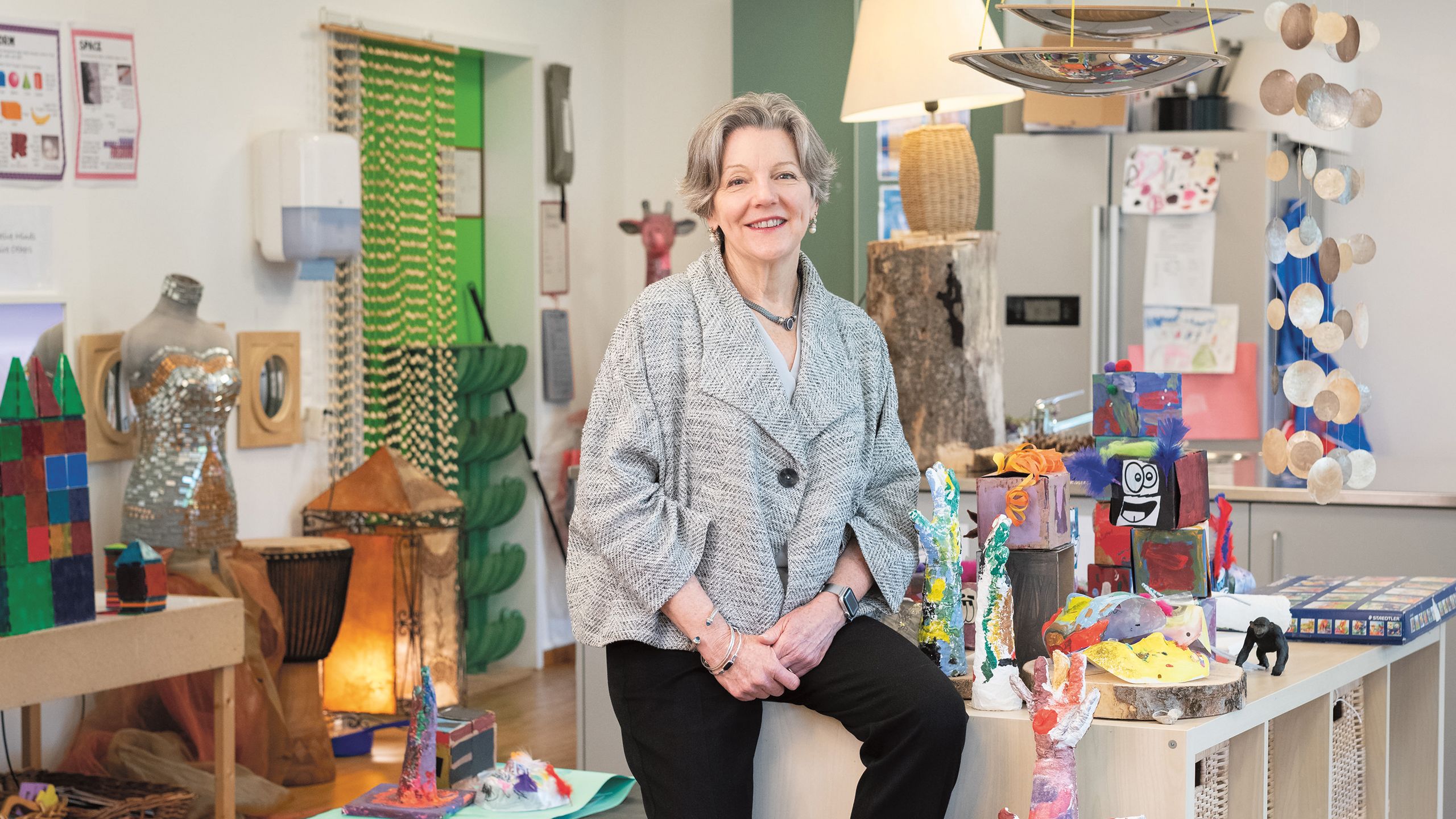
“When I’m thinking about the curriculum or planning an activity, all I have to think about is how what I’m planning is going to positively impact my students and their learning”
Brook Mullens
Science and PE teacher
When ZIS opened its doors as AISZ in 1963, parents and teachers alike were full of hope for their new school. They were immensely proud that it would be able to deliver outstanding education and a warm home-from-home for families from all over the world. But almost as importantly, the founders also wanted to ensure their new school would endure. And so, they established ZIS as a non-profit school – guaranteeing that every franc of income would be spent on supporting education.
ZIS is still a non-profit today – but what does that status mean in the 21st century? Perhaps surprisingly, Science and PE teacher Brook Mullens, says it’s an easy question to answer. “When I’m thinking about the curriculum or planning an activity, all I need to think about is what will be best for students,” he says. “I don’t have to think about the financial drivers or the bottom line. All I have to think about is how what I’m planning is going to positively impact my students and their learning.”
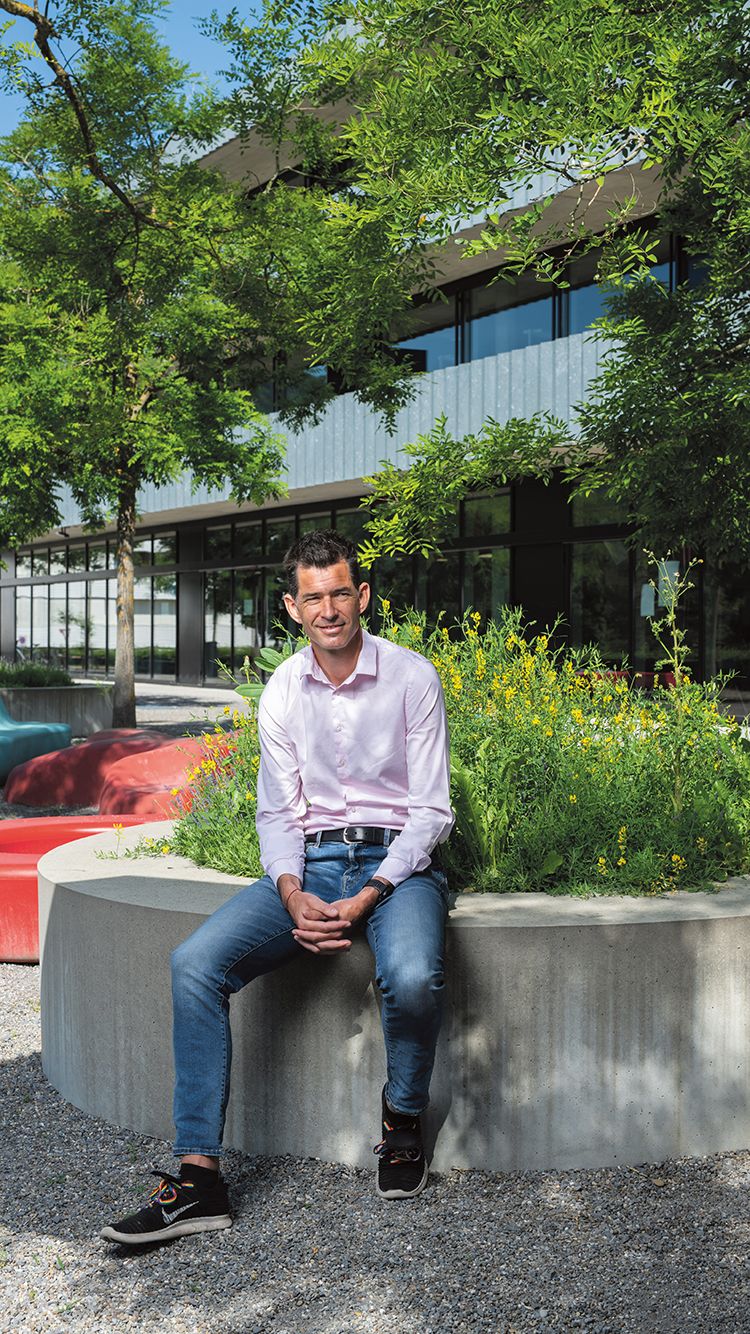
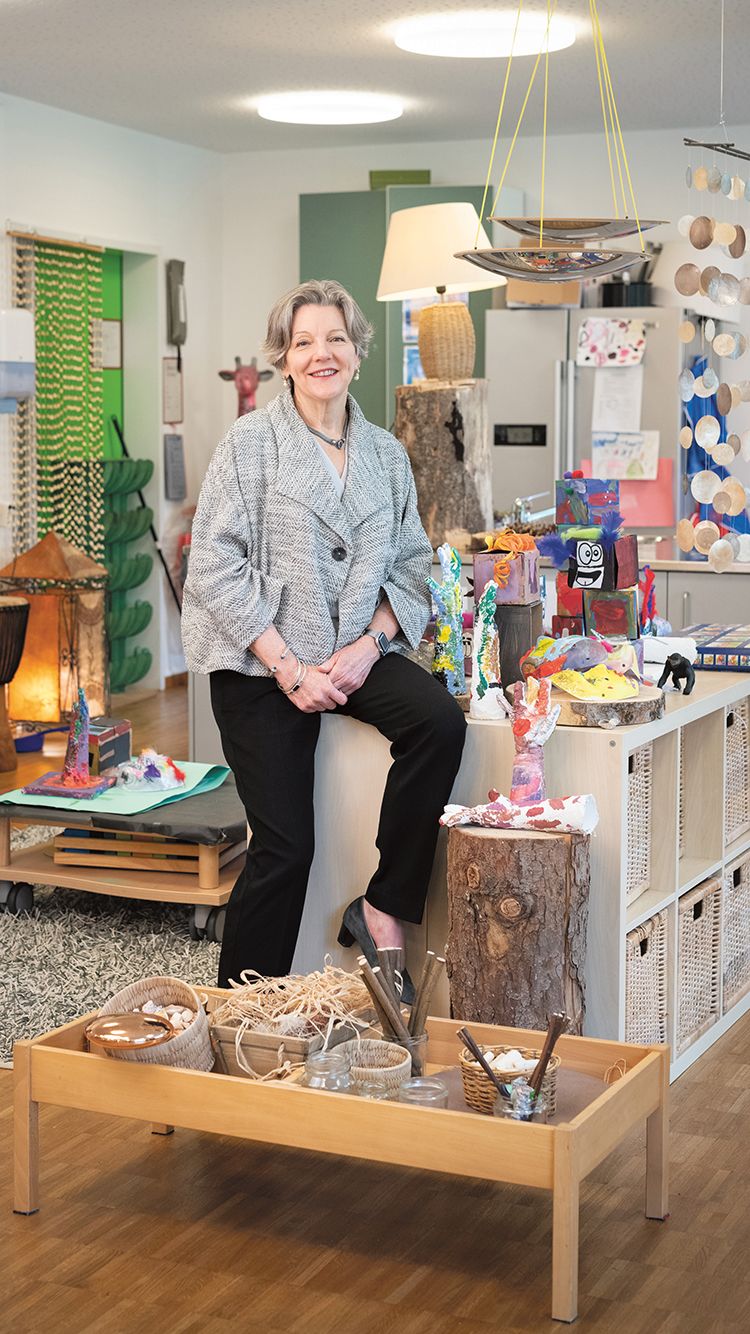
“Parents’ support is vital. The enhanced education and opportunities we pride ourselves on rely, to some degree, on additional funding. The Annual Fund allows us to maintain these and deliver further strategic initiatives in the future”
Lisa Lyle
ZIS Director
Director Lisa Lyle points out that ZIS differs from some other international schools, many of which offer a solid international education but with a focus on generating a return on investment to their shareholders. “Our commitment to service means that we employ people who are committed to the greater good,” says Lisa. “As an organisation, we embody that, and we expect it of our students. There is no conflict in objectives between the governing body and the actual mission of the school.”
However, not-for-profit status is by no means the easy option. Yes, you can plan for the long-term and put students first, but, as Lisa points out, it doesn’t excuse you from making the tough decisions – and from being entrepreneurial. “For example, we start
building our budget for the following academic year in January – before we know how many students we are going to have in August,” says Lisa.
Which is where the Board of Trustees comes in. After careful analysis and forecasting by the senior leadership team, the Board approves the budgets for the year ahead. This year, for example, they have set aside funds beyond the normal operating budget for strong STEM (Science, Technology, Engineering and Math) and German programmes, the adoption of a new social emotional curriculum, a new Lower School mathematics programme and greater allocation of staffing for curricular and grade level oversight in Grades 6-12, among others. The allocations are based on predictions of income from the various sources, including donations to the annual fund.
“As a not-for-profit, parents’ support is vital – through things such as philanthropy and volunteering,” explains Lisa. “This is because some of what we want to do goes beyond our existing resources, such as capital investment in a new building, for example. And the enhanced education and opportunities we pride ourselves on rely to some degree on additional funding, and the Annual Fund allows us to maintain these and deliver further strategic initiatives in the future.”
“Nowadays, private schools are very competitive. And while they do offer some great experiences, you do end up wondering whether business, rather than education, is the focus. At ZIS, I feel that the allocation of funds is targeted into specific programmes in a very clear and transparent way”
Rachel Rey
Current Parent
Parent Rachel Rey says as a prospective parent she was initially surprised to see the donate options on the ZIS website. “Coming from the experience of for-profit schools, I initially found it a little curious! Having now a better understanding of the school structure, I think it’s a really good thing. I feel that the allocation of funds is targeted into specific programmes in a very clear and transparent way. Also, this structure in Switzerland allows the giving to be tax-deductible, so it makes sense. Why not contribute where funds are used effectively?”
Rachel likes the core mission of education which being a not-for-profit school encourages. “Nowadays, private schools are very competitive. And while they do offer some great experiences, you do end up wondering whether business, rather than education, is the focus.”
Indeed, the lack of shareholders means that ZIS can concentrate on what will benefit students the most, such as offering both an International Baccalaureate (IB) programme and Advanced Placement (AP) courses. “One of the advantages of not-for-profit is that you can have a generally wider offering, as you are not bound by per segment profitability,” says former board member and parent Erik Kaas. “It gives more choice and allows for more individualisation of a child’s education pathway. The breadth of offering also includes adjacent services which we are able to offer, even though they do not create a profit but are of great benefit overall, such as our bus services. Our fees and donations enable this. The Middle School project, as well, is for the longevity of the school and shows vision. I’ve donated to the project, even though my kids won’t benefit from it – they will have left by the time it’s finished. But it’s good for the long-term strategy of the school.”
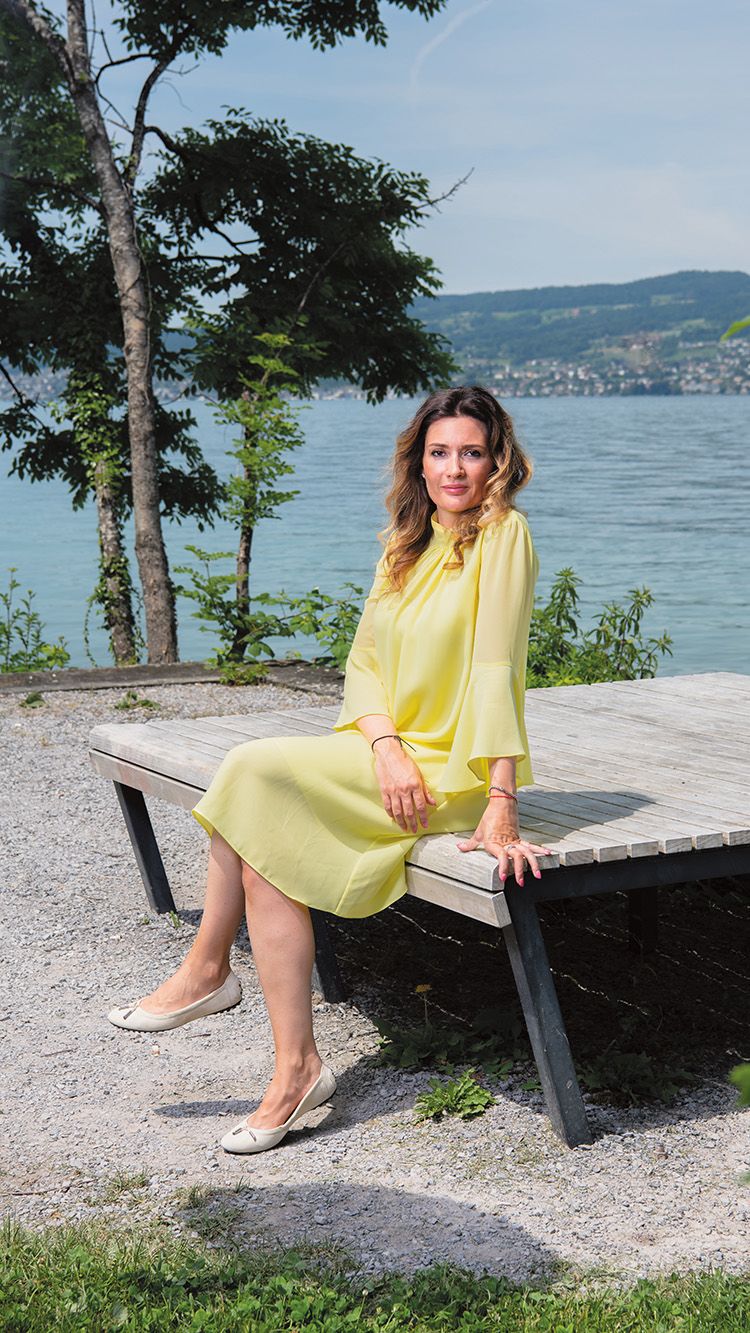
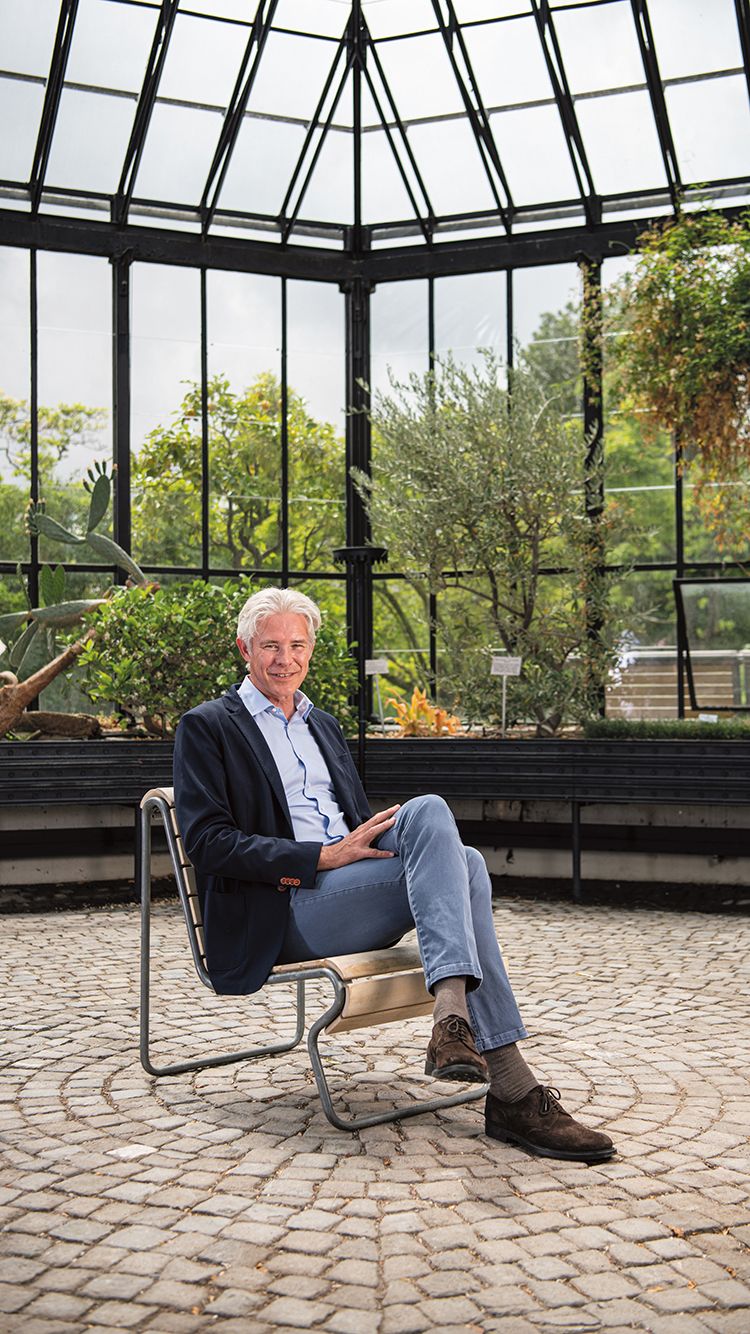
“One of the advantages of not-for-profit is that you can have a generally wider offering, as you are not bound by per segment profitability. It gives more choice and allows for more individualisation of a child’s education pathway"
Erik Kaas
Parent and former Board member
Being a not-for-profit also enables smaller class sizes and curriculum breadth. Having small class sizes is the ideal, explains Lisa, and some classes that still benefit students might have as few as eight members. Similarly, missing a specialised subject, such as a language, would compromise a student’s experience, she says. “We are committed to smaller class sizes because we want students to have individual attention, and we also want them to pursue their passions.”
The school works hard to offer fair tuition rates, says Lisa, but this isn’t always easy, either. “We know that in our current non-inflationary environment with negative interest rates, increasing tuition by half a per cent feels like a lot of money – particularly over the last year when we know so many families have been adversely affected by the pandemic. For this reason, we offered a refund for experiences and trips beyond the classroom which didn’t happen last year. We recognise that families paid for services which they weren’t able to use.”
The Covid pandemic, says Lisa, has demonstrated the great need for the ZIS kind of education: face-to-face learning, bringing dedicated professionals together with students to educate them and to help them develop compassion, resilience and self-awareness. That precious students-over-profit ethos isn’t purely about money. It’s also about something deeper: trust, and collaboration between parents, students and the school.
“This structure addresses an otherwise inherent conflict between the interests of the board and the students,” says Erik. “The ZIS board, after all, is just there to represent the parents and stakeholders as a whole. Change of ownership as it happens more frequently in for-profit schools may lead to more frequent strategy shifts. But in a not-for-profit, there is more of a sense of community and collaboration.”
Ultimately, it means that “learn, care, challenge, lead” can be everyone’s goal, says Brook. “Students feel that teachers are there to support them – it feels as though we’re all working together in this learning process and working towards shared goals. I guess it’s all about people, and our job is to support our students to become great citizens of the world.”
ZIS is a non-profit under Swiss law, and students have been benefiting from donations via the ZIS Foundation, a US non-profit organisation, for nearly 20 years. Donations to both are tax deductible for US citizens, and the Foundation supports both Capital Campaigns and the Annual Fund, the school’s primary fundraiser with an immediate impact on ZIS by funding essential programmes and learning experiences for students, teachers and the whole ZIS community.
To find out more, visit zisfoundation.com and zis.ch/support/annualfund
ZIS is very grateful to Foundation donors, and would also like to thank its board members, Marten Hoekstra, Lisa Lyle, Philip Ryan, Jennifer Saxe and Brian Scanlon. Thanks also to the Annual Fund committee members, Anke Baur, Celine Rabier, Patricia Shelton and Astrid Tschopp.

